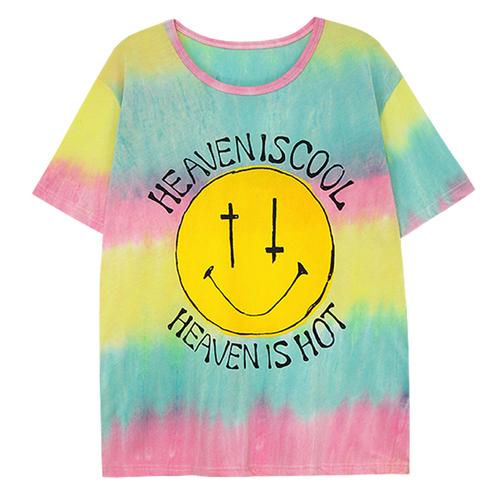T-shirt customization is a personalized way to show your unique style and taste. Choosing the right fabric is the key to ensuring the quality and comfort of customized T-shirts. The following will decrypt the production processes of different fabrics to help you better understand fabric selection.
1. Cotton fabric: Cotton fabric is one of the most common T-shirt fabrics. It has the characteristics of good hygroscopicity, strong breathability, softness and comfort. . The production techniques mainly include pure cotton and blended cotton. Pure cotton fabrics are naturally environmentally friendly, but prone to wrinkles; blended cotton fabrics can reduce wrinkles and increase durability. When making pure cotton T-shirts, a flat stitch machine or a chain stitch machine is generally used to sew them to ensure a close fit and comfort.
2. Polyester fabric: Polyester fabric has the advantages of wrinkle resistance, good elasticity, washability, and easy drying. It is often used in sports and outdoor T-shirts. The production technology mainly includes polyester and polyester-cotton blended fabrics. Pure polyester fabrics are suitable for designs that need to stay flat, while polyester-cotton blends improve breathability and moisture absorption. When making T-shirts made of polyester fabrics, multi-needle machines or flatbed machines are often used for sewing to ensure firm stitching and stable quality.
3. Linen fabric: Linen fabric has the characteristics of good air permeability, good moisture absorption, anti-crab claws, anti-scorching, etc., and is the first choice fabric in summer. one. The production techniques mainly include pure linen and blended linen. Pure linen fabric is breathable and comfortable, but easy to wrinkle and deform; blended linen maintains the advantages of linen and increases the stability of the fabric. When making T-shirts made of linen fabrics, it is necessary to use a flat needle machine with a small density gauge to avoid tight lines or damage to the fabric fibers.
4. Knitted fabric: Knitted fabric has the characteristics of good elasticity, softness and comfort, and is suitable for making close-fitting and slim-fitting T-shirts. Commonly used knitted fabrics include cotton, polyester and blends. The production process of different fabrics will be slightly different, but it mainly includes fabric cutting, sewing and ironing.
It should be noted that different fabric selections and production processes will affect the wearing feel and appearance of T-shirts. Therefore, when customizing T-shirts, it is recommended to comprehensively consider the characteristics, comfort, breathability and other factors of the fabric based on needs and personal preferences, and choose reliable manufacturers and craftsmen to ensure quality and effect.









